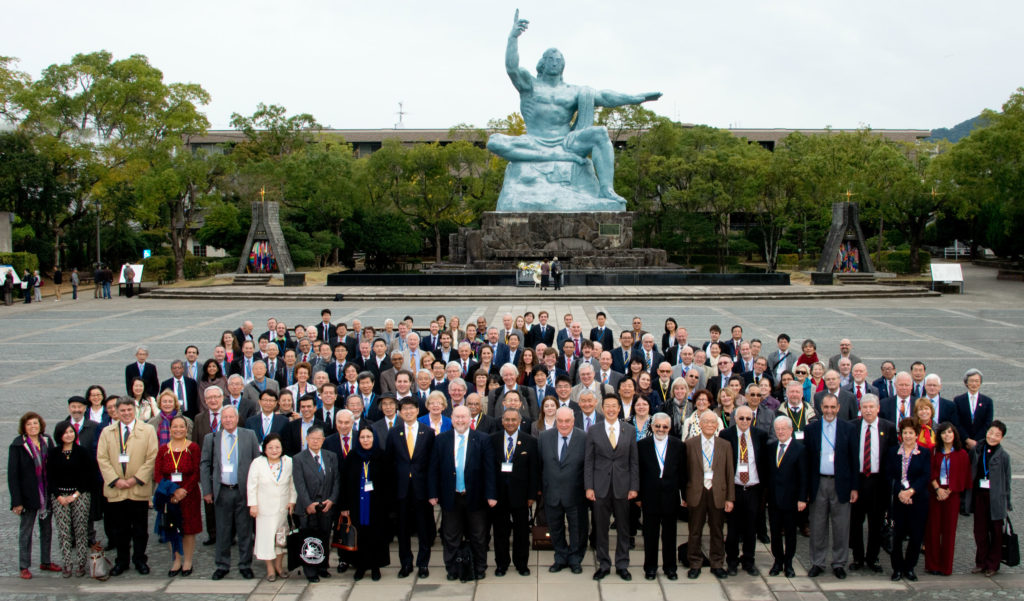Last November, the biennial Pugwash Conference on Science and World Affairs met in Nagasaki, Japan in commemoration of the 70th anniversary of the nuclear bombing of Hiroshima and Nagasaki during World War II. Pugwash was established in 1957 by a cadre of scientists who recognized their duty to address the moral implications of their technical work. Like UCS, the organization focuses on the intersection of science and policy, with the ultimate goal of abolishing nuclear weapons worldwide. The Pugwash meetings bring together senior governmental policy makers and nuclear experts from a variety of disciplines, spanning physics and engineering, international relations, and ethics, to provide guidance and a technically sound voice in international governance.

Participants at the 61st Pugwash Conference, Nagasaki, Japan, November 1-5, 2015 (Source: pugwash.org)
This year’s Pugwash meeting included more than 150 senior scientists and policy makers. I was one of about 30 members of the International Student Young Pugwash (ISYP) who were also in attendance, both for the main conference and for the dedicated ISYP symposium that immediately precedes these meetings. Like the Summer Symposiums organized by UCS, ISYP focuses on fostering an international network of early career specialists working in global security. ISYP includes a breadth of early career participants ranging from undergraduates to assistant professors. UCS Summer Symposium alumni were well-represented among the technical members of this year’s attendees, and made up more than 20% of the ISYP delegation. It was wonderful to reconnect with other Symposium alumni from around the world and to meet some of the newest members of the nuclear policy community.
UCS and Pugwash complement one another in their mission to integrate science and policy. The Summer Symposiums introduce technical scientists to the language and perspectives of policy and foster international connections in global security. Pugwash expands these networks to include social scientists and policymakers and strengthen intergenerational connections. These interdisciplinary meetings are especially valuable because they bridge cultural divides within the security policy community. Pugwash is immensely effective at bringing policy makers and technical specialists together in direct conversation to better inform decisions. It also promotes good-faith dialogue with representatives from states mired in conflict that can transcend political rhetoric and address substantive issues.
One example from the conference: my family-style hotel room was shared by two Iranians, one Russian, and one American, all of us newly acquainted through ISYP. While this combination of countries may sound like the setup for a political joke, in fact by the end of the week we had overcome cultural differences, developed personal connections, and left the conference as friends hoping to reconnect soon.
My first Summer Symposium in 2009 introduced me to the field of global security policy, providing me with the opportunity to apply my technical aptitude to pressing real-world problems. It gave me the motivation, perspective and network to develop my career in nuclear policy. My resulting research path led directly to my opportunity to attend Pugwash, where I have developed relationships with policy analysts, which will continue to strengthen and evolve as my generation becomes more established in the field. Conferences like the Summer Symposiums and Pugwash provide critical opportunities to develop relationships across disciplines, generations, and national boundaries, and help to sustain focus on the essential topic of nuclear nonproliferation and disarmament.
